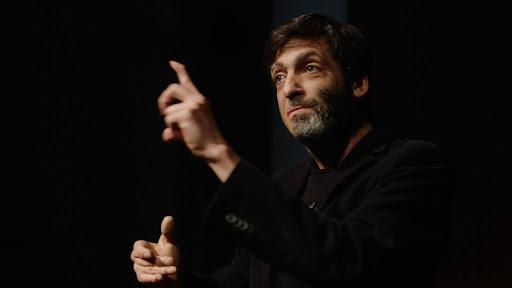
Dan Ariely has devoted his career to understanding irrational behavior. According to the Duke University professor of psychology and behavioral economics, ESG investors are the perfect test group. They focus, he says, on what is easy to measure rather than on what actually matters for returns.
Ariely, known for his Ask Ariely column in The Wall Street Journal and several New York Times bestsellers, has spent the past eight years studying what he calls the missing variable in ESG: how employees think they are treated by their companies. “I think we’ve all been disappointed in ESG investing,” he said. “The problem is that ESG was built on the wrong measurements.”
Speaking with Investment Officer at the Investments & Wealth Institute’s Strategy Forum in New York, a two-day event for professional wealth managers, Ariely argued that many ESG investors rely on superficial proxies that reveal little about how companies actually behave, and that this costs investors money.
The dataset behind Irrational Capital, Ariely’s research firm, goes back to 2006 and has been used in recent years by Harbor Capital, a subsidiary of Orix. The firm runs a suite of ETFs based on the scores. Its flagship fund, the Harbor Human Capital Factor US Large Cap ETF (HAPI), weights companies according to their Human Capital Factor (HCF) score. The ETF holds about 150 stocks and charges 0.35 percent.
Since launching in October 2022, HAPI has outperformed both the S&P500 Total Return index and the S&P500 Scored & Screened index, an ESG variant of the benchmark that maintains the same sector weights.
Rebased returns since inception: HAPI vs S&P500
Irrational Capital collects millions of survey responses and data signals from employees at publicly listed companies. These are translated into Human Capital Factor scores that measure motivation, fairness, psychological safety and the emotional connection employees feel to their work.
“The percentage of women in a company’s leadership, a metric widely used in ESG scoring, is easy to measure,” Ariely said. “But it is a poor proxy for how people are actually treated. What matters is human capital, whether people are treated with respect and whether they feel valued.”
According to Ariely, these are the factors that truly drive corporate performance, yet they remain almost invisible in financial reporting.
What the research shows
Academic research broadly supports the link between employee sentiment and stock returns. Alex Edmans, professor at London Business School, studied Fortune’s annual list of the 100 Best Companies to Work For. He found that these US companies outperformed their industry peers by 2.3 to 3.8 percent per year over a 28-year period, and also delivered stronger earnings surprises.
JPMorgan’s quantitative research team has been studying Ariely’s HCF model since 2021 and confirms that HCF “not only improves investment returns but also outperforms traditional ESG metrics and styles,” the bank wrote in a client note published in late October.
On average, portfolios of high-scoring companies generate roughly 4 percent excess return per year with lower drawdowns and more stable long-term growth. JPMorgan attributes this to faster earnings growth, higher margins and stronger balance sheets at companies with healthy workplace cultures.
“The data continue to underscore the value of human-capital indicators in portfolios,” the analysts wrote. “Companies with high HCF scores are more resilient and perform better over the long term than companies with weak scores.”
Europe lags behind
The model does not work equally well everywhere. A fourteen-year backtest for Europe shows no reliable excess return. JP Morgan attributes this to thinner and less consistent data on employee experience in the region.
Edmans also warns that the US results cannot simply be applied to Europe. “Strategies based on employee satisfaction work best in countries with flexible labour markets,” he said.
A small-cap version of the strategy has struggled as well. The Harbor Human Capital Factor Small Cap ETF (HAPS) has lagged most of its peers since launch and charges a higher fee of 60 basis points, according to Morningstar.